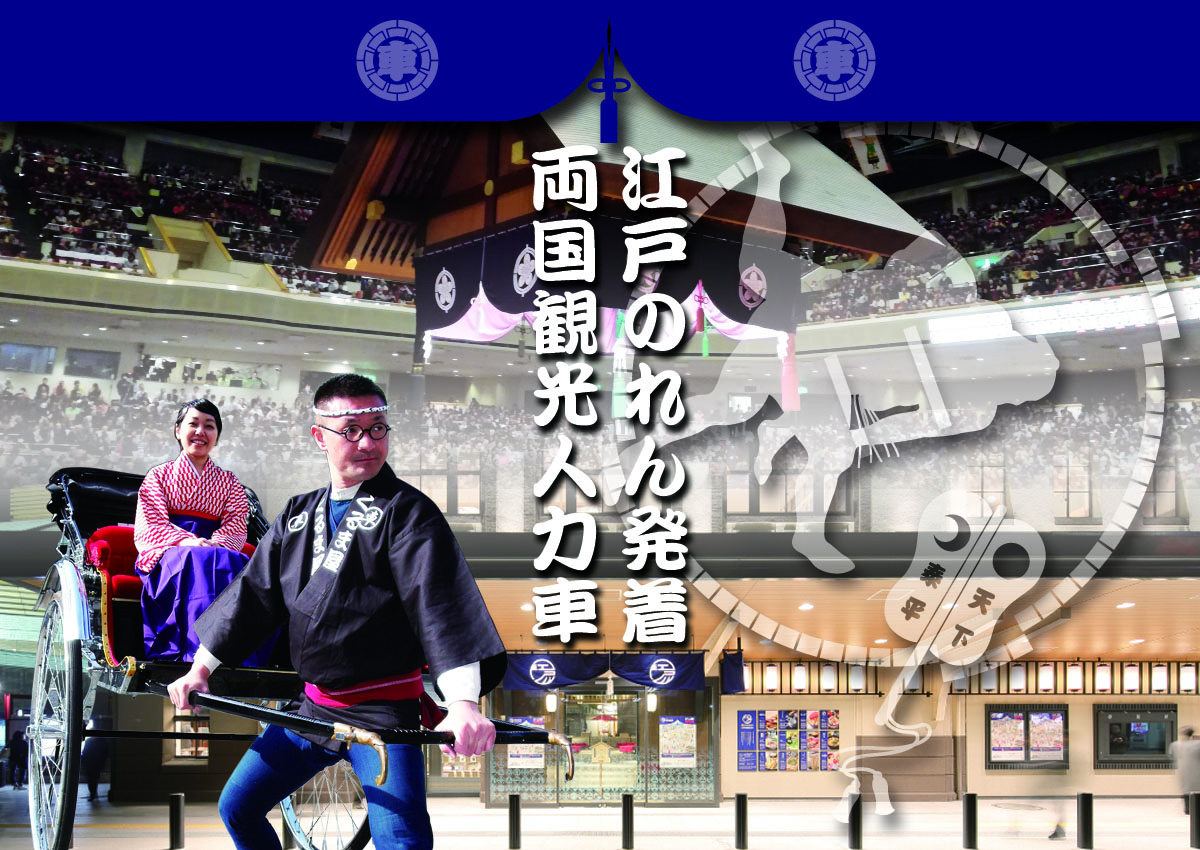There is a rickshaw depot in “Edo Noren” located next to the JR Ryogoku Station (until June 30).
Tour is operated on Wednesdays, Thursdays, Fridays, and everyday during Sumo Season, from 11:00 to 17:00.
Please use contact form for reservation and inquiries (reservation for 15min. course cannnot be accepted).
